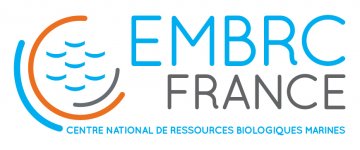Control of global protein synthesis during kidney regeneration of the catshark
Control of global protein synthesis during kidney regeneration of the catshark: a key step to explore the homeostasis of stem cells
We are interested in understanding the physiological and molecular mechanism associated to the maintenance of the elasmobranch nephron progenitors of elasmobranch, a subclass of Chondrichthyes or cartilaginous fish, at the post-embryonic stage.
Nephrons are the functional units of the kidney. During embryogenesis they are derived from a pool of self-renewing progenitors that cease propagation and are terminally differentiated within few days after birth in mammals. Each kidney is made of thousands or millions of nephrons. In mammals, the number of nephrons is fixed at birth meaning that the depletion of the progenitor pool is a physiological process and that adult mammals cannot generate new nephrons. In contrast, new nephrons are continually added to the adult kidney of elasmobranchs and this process contributes to the lifelong kidney growth in this taxon. Neonephrogenesis is also observed upon partial nephrectomy in the little skate indicating that the aptitude to growth new nephrons can be triggered in a pathological context. This interesting regenerative property of the elasmobranch kidney relies on the maintenance of the nephron progenitor pool beyond hatching. In particular, we are studying the role of global protein synthesis control in this maintenance together with the one of the mTOR pathway, an important signalisation pathway involved in translation initiation.
Our model is the small-spotted catshark (Scyliorhinus canicula), an abundant shark of the Northeast Atlantic. Embryos at different developmental stages, juveniles and adults (see pictures below) are available at the Station Biologique de Roscoff through the EMBRC France portal.
Project leader: Agnès Boutet ( )
People involved: Julia Morales DR2; Virgine Glippa AI
Former members: Yasmine Lund-Ricard (PhD 2019-2023); Julien Calloch (Engineer 2017-2018)
Publications:
- Lund-Ricard Y, Cormier P, Morales J, and Boutet A. mTOR Signaling at the Crossroad between Metazoan Regeneration and Human Diseases. Int J Mol Sci. 2020
- Lund-Ricard Y and Boutet A. Current trends in Chondrichthyes experimental biology (2021) In: Boutet, A. & B. Schierwater, eds. Handbook of Established and Emerging Marine Model Organisms in Experimental Biology, CRC Press.







